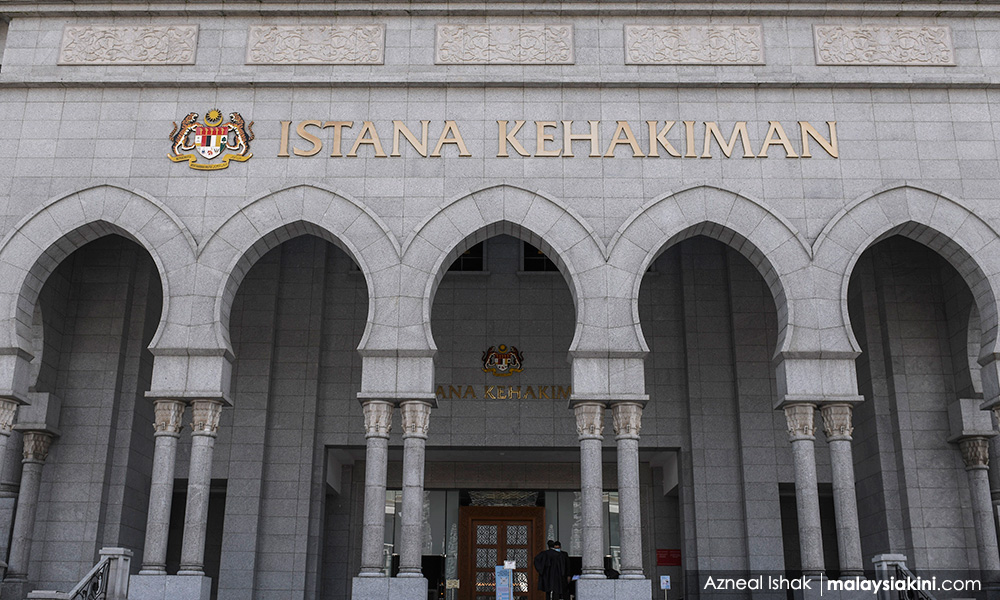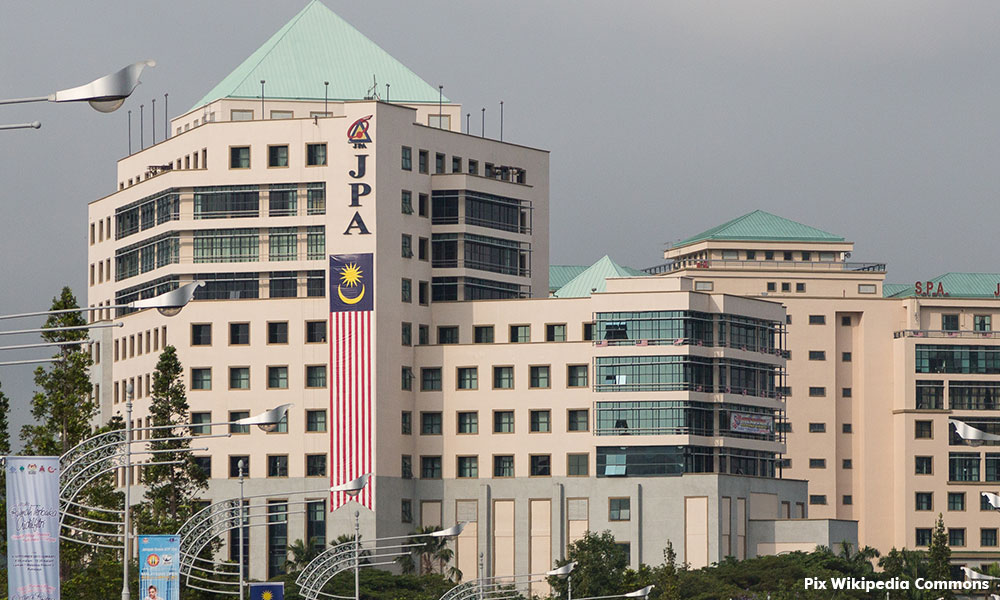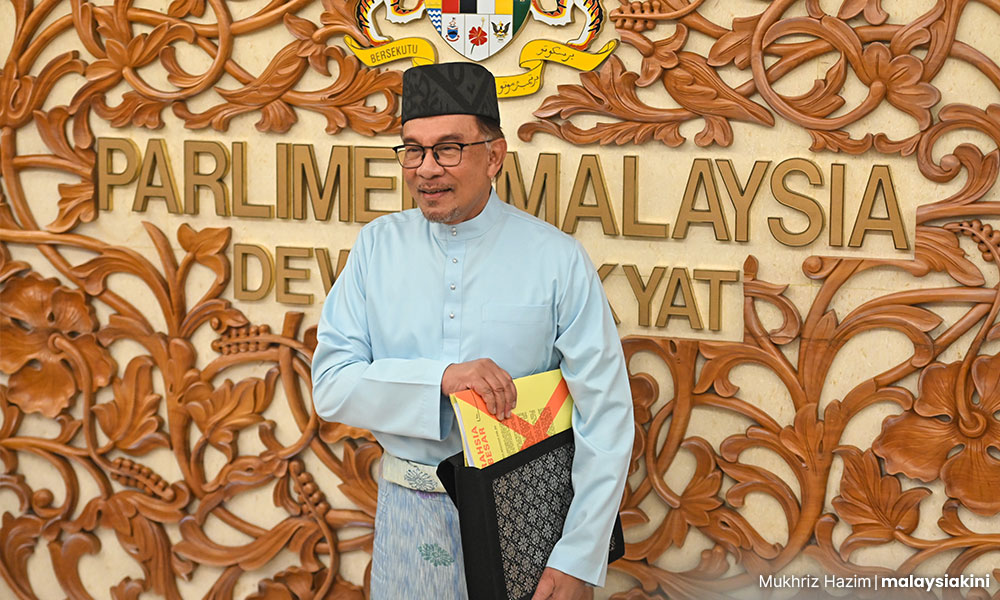It has come to our attention that the government has yet to finalise and resolve the pension scheme adjustment for the benefit of retired civil servants following the Federal Court decision made on June 27, 2023.
The Federal Court ruled in favour of the plaintiff, that the Pensions Adjustment (Amendment) Act 2013 is invalid, and that it contravenes Article 147 of the Federal Constitution, which protects pensioners from losing out on any less favourable changes to the law.
The Federal Court in its landmark judgment ordered the reinstatement of the original Section 3 of the Pensions Adjustment Act of 1980.
G25 stands in solidarity with the pensioners, a million of whom have served the country well. G25 is committed to fighting for justice and good governance for all Malaysians and thus, we give our support to our fellow pensioners’ cause.
After all, this is a constitutional right to be accorded to them by the government, and ordered by the Court of Appeal and the Federal Court.
Their entitlement to enjoy the fruits of their litigation must be respected. The government must not delay implementing the Federal Court’s judgment, especially considering many pensioners are in the later years of their lives.

By virtue of the Pension Adjustment (Amendment) Act 2013, the pension scheme in place since 2013 for civil servants who retired before and after 2013, is to receive an annual increment of two percent.
However, this adjustment of two percent annually is less favourable than the former method of calculating pensions as provided for by the unamended Pensions Adjustment Act 1980 that provided for the ‘corresponding adjustment’ principle.
According to this principle, whenever there is a salary revision for civil servants, the pensions of retired civil servants will be adjusted upwards in tandem with the corresponding quantum of salary increment.
Money-wise, this corresponding adjustment principle works better for retired civil servants as compared to the two percent annual increment.
Hence, the two percent annual increment brought about by the Pension Adjustment (Amendment) Act 2013 is a violation of Article 147 of the Federal Constitution – as rightly ruled by the Court of Appeal and Federal Court.
Salary comparisons
To put things in perspective, a lieutenant colonel of the Malaysian Armed Forces who retired in the 1980s, one who bravely fought in the Indonesian Confrontation 1963-1966, would earn much less than a lieutenant colonel who just retired last year.
A lieutenant colonel’s salary in the 1980s would have been RM2,800 at the highest, but the salary of a lieutenant colonel in the 2020s would have been RM12,000.
In addition, medical staff of grade U29 of the highest bracket in 2009 received a salary of RM3,476.28, while medical staff in 2013 of the same grade and bracket received a salary of RM4,508.20.
In another example, the pension for a non-graduate teacher of the highest grade who retired in 2002 is currently RM3,215 and the pension for a non-graduate teacher of the same grade who retired in 2021 (after 2013) is currently RM3,670.
Though this is not a major difference, we have over 400,000 teachers in service.
The formula to calculate pensions prior to the 2013 amendment, based on the Pension Adjustment Act 1980, for regular pensioners is 1/600, multiplied by the months of service, multiplied by the last drawn salary, and taking into account the corresponding current last drawn salary of that pay grade.

However, under the 2013 Pension Act, with the two percent annual increment, the former lieutenant colonel would never have achieved the latter lieutenant colonel’s pension amount.
Therefore, the Pension Adjustment (Amendment) Act 2013 scheme is less favourable than the pension scheme prior to it.
Though we note and understand the hesitancy on the part of the government to implement the Federal Court’s judgment that orders the government to make out payments of pensions to pensioners who benefitted under the judgment, in accordance with the corresponding adjustment principle, due to the potentially large strain on our national coffers (a whopping RM26.39 billion spent in 2020 which includes, pension payout, benefits, and rewards) the implementation is, however, inevitable and mandatory.
The government must obey the Federal Constitution and the judgment of the Federal Court.
Pensioners shortchanged
As a matter of social justice and compassion to those who served the nation with their sweat and tears, their services must be appreciated.
A 2016 Public Service Department Report revealed that 75 percent of pensioners receive less than RM2,000 a month, and over 400,000 pensioners, the majority, receive a median income of RM1,439.

To put things in perspective, in 2016, the poverty line income was RM980. However, this was based on an old method of calculating the poverty line.
In 2019, a new method of calculating the poverty line income was established following the 11th Malaysia Plan. In 2022, Malaysia’s poverty line income was raised to RM2,589.
As we can see, the median income that most civil service pensioners receive is far below the poverty line, putting them into the B40 category.
Considering the two percent yearly increment, most pensioners would have earned only RM1,676.86, a sum still well below the poverty line. The two percent yearly increment is, indeed, a short-changing by the government of government pensioners.
Pair expansion budget with reforms
Budget 2024 must address the growing concerns of where the money is coming from. Although Malaysia remains a stable economy, we should learn from our past mistakes and introduce institutional reforms without further delay, especially under the Ekonomi Madani plan.

An expansionary budget is welcome to keep the economic engine pumping in high gear, but it must be accompanied by institutional reforms to safeguard the country’s finances against leakages, bad management, and corruption.
At the same time, we must strengthen the revenue base through tax reforms, particularly by re-introducing the GST so that the government can implement the big Madani budget without raising concerns in the financial and capital markets about the country’s financial stability.
We must maintain our sovereign international credit rating to inspire local and foreign confidence in Malaysia as a stable country.
The revenue from GST should not be spent on more subsidies as this will put a strain on the fiscal deficit.
Instead, the government should work towards reducing the subsidies especially on petrol and diesel as they account for most of the RM26 billion spent in a year on subsidising a wide range of products. Malaysians must not become addicted to subsidies.
Implementing GST and reducing fossil fuel subsidies will provide strong revenue. The government can use a portion of it to compensate the poor for the additional costs to their daily expenditures. The cash transfers will help the poor cope with the GST.
With a stronger revenue base, the government will be able to devise a better pension scheme. Without compromising on the principle of Article 147 of the Federal Constitution, perhaps it would be acceptable that a scheme be devised and implemented in stages, which would benefit the older and lower-paid retirees first and progress from there.
The government must no longer drag its feet on doing the necessary financial and economic reforms no matter how painful they may be. They have no choice but to look at implementing necessary albeit painful reforms to deliver what is due to the people. - Mkini
G25 is an NGO of individuals, rich with experience in various fields with diverse views but a common goal and common vision.
The views expressed here are those of the author/contributor and do not necessarily represent the views of MMKtT.




No comments:
Post a Comment
Note: Only a member of this blog may post a comment.